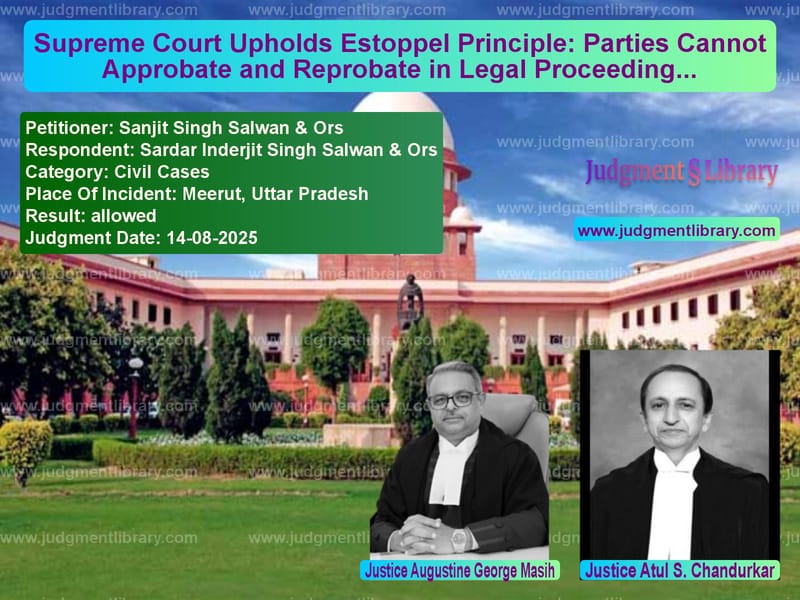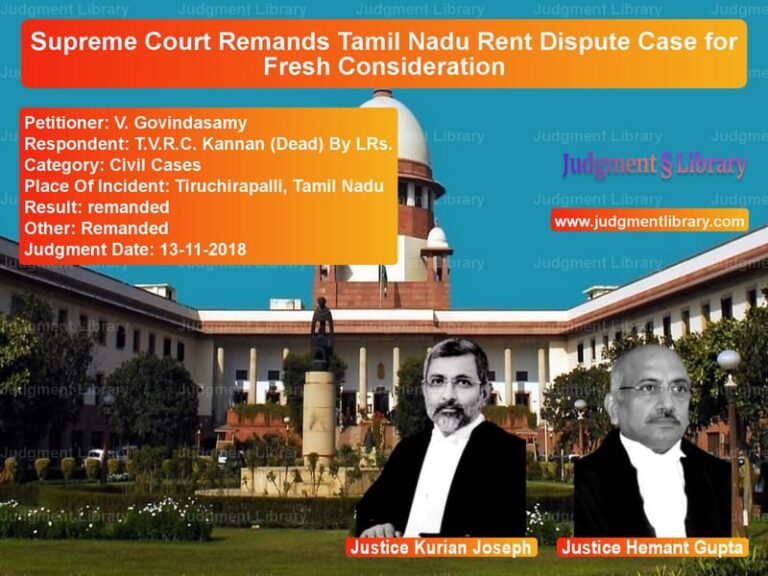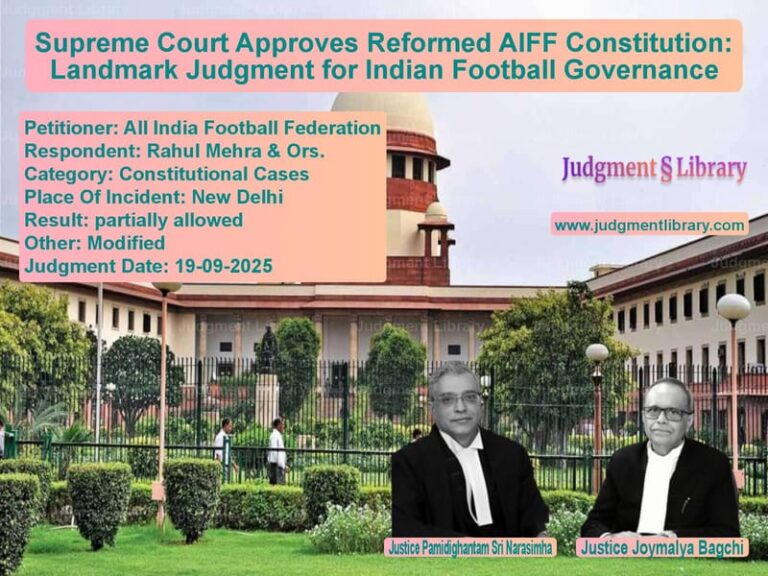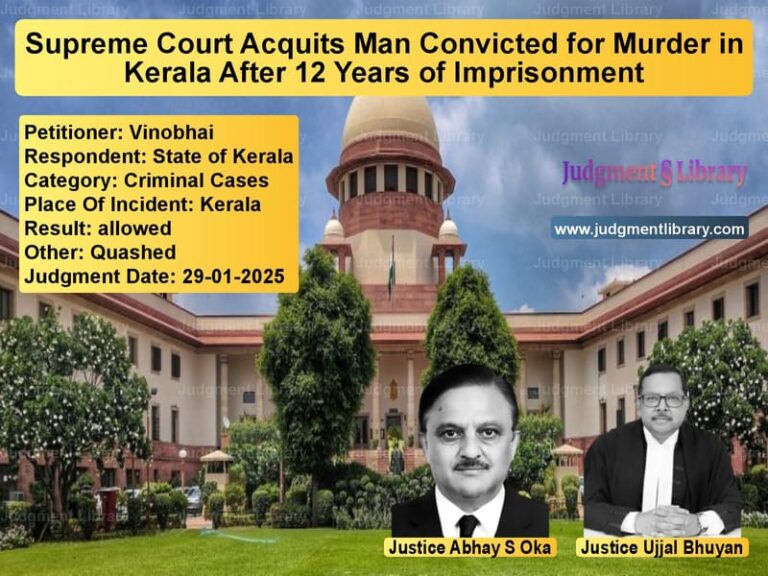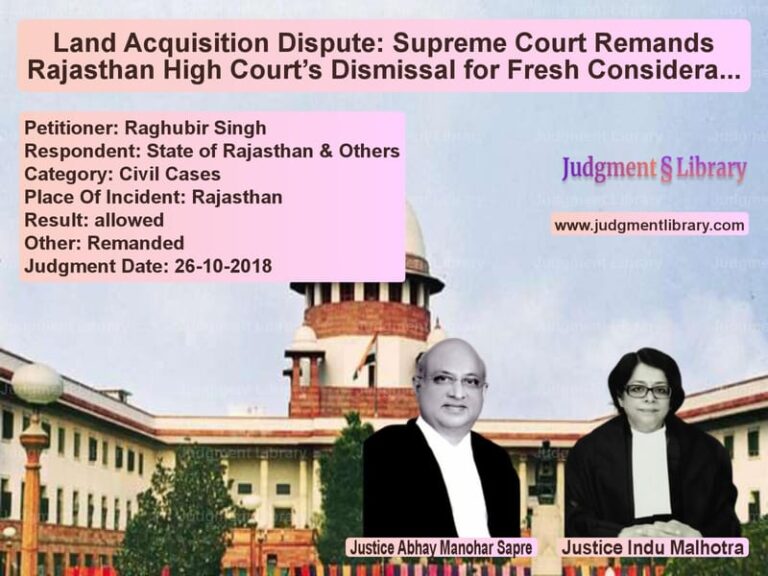Supreme Court Upholds Estoppel Principle: Parties Cannot Approbate and Reprobate in Legal Proceedings
In a significant ruling that reinforces the fundamental principles of fairness and consistency in legal proceedings, the Supreme Court of India recently delivered a judgment that serves as a powerful reminder about the importance of maintaining consistent positions in court cases. The dispute involved trustees of the Guru Tegh Bahadur Charitable Trust who had been locked in a legal battle over the management of the trust and its educational institutions. What began as a simple suit for injunction eventually transformed into a complex legal saga involving arbitration, consent decrees, and ultimately, a crucial question about whether parties can change their legal positions to suit their convenience.
The Background of the Trust Dispute
The case originated from a dispute between Sanjit Singh Salwan and other appellants against Sardar Inderjit Singh Salwan and other respondents, all claiming to be trustees of the Guru Tegh Bahadur Charitable Trust. The respondents had initially approached the civil court seeking a perpetual injunction to restrain the appellants from entering the school premises run by the trust and from interfering with its functioning. This legal action set in motion a series of proceedings that would eventually reach the Supreme Court.
The appellants challenged the maintainability of the suit by filing an application under Order VII Rule 11 of the Code of Civil Procedure, arguing that the suit was barred by Section 92 of the CPC, which deals with suits involving charitable trusts. The trial court accepted this contention and rejected the plaint on April 13, 2022. The respondents, aggrieved by this decision, filed an appeal before the district court.
The Arbitration Agreement and Consent Decree
During the pendency of the appeal, a significant development occurred. The parties decided to resolve their disputes through arbitration and appointed Advocate Vipin Sodhi as the sole arbitrator. In an application dated July 7, 2022, the respondents informed the appellate court that “the appellants as well as respondents have mutually decided to get their matter resolved out of the Court under arbitration of Shri Vipin Sodhi, Advocate, Meerut.” This marked a crucial turning point in the case.
The arbitrator passed his award on December 30, 2022, creating an arrangement for managing the trust’s affairs. Both parties then filed a joint application before the district court on January 2, 2023, stating that “We both parties accept the Award and it shall be binding on us. We shall not challenge the award and will abide by it in true sense and spirits.” Based on this joint application, the district court disposed of the appeal on January 27, 2023, in terms of the compromise deed, which was made part of the decree.
The Change of Position and Legal Challenge
According to the appellants, they complied with their obligations under the award, but the respondents failed to reciprocate. The appellants initially filed execution proceedings but withdrew them on December 8, 2023, to file an application under Section 9 of the Arbitration and Conciliation Act, 1996, seeking interim measures based on the arbitral award.
At this stage, the respondents took a completely opposite stand. They argued that the award was a nullity because the disputes related to trust affairs and were non-arbitrable under Section 92 of the CPC. The commercial court accepted this argument on May 24, 2024, holding that the arbitrator couldn’t have decided trust-related disputes and that the award was unenforceable. The High Court affirmed this decision on August 30, 2024, prompting the appellants to approach the Supreme Court.
The Arguments Before the Supreme Court
Senior Advocate C.U. Singh, representing the appellants, made compelling arguments. He contended that “the parties having accepted the award passed by the arbitrator on 31.10.2022 which thereafter resulted in a consent decree being passed by the District Court on 27.01.2023, it was not permissible for the respondents to disregard the same and contend that the consent decree was not binding upon them.” He emphasized that the consent decree had become final and that the respondents were estopped from questioning its validity after having consented to its passing.
Mr. Singh further argued that “the appellants in accordance with the terms of the consent decree had complied with their obligations by taking necessary steps but no reciprocal steps were taken by the respondents.” He highlighted the grave injustice that would result if the appellants were left without any remedy despite the existence of a consent decree that had attained finality.
On the other side, Senior Advocate Gagan Gupta, representing the respondents, defended the lower courts’ decisions. He argued that “notwithstanding the passing of the consent decree, the Commercial Court was justified in holding the award dated 30.12.2022 to be a nullity.” He maintained that trust-related disputes couldn’t be arbitrated under Section 92 of the CPC and that this jurisdictional defect could be raised at any stage. He also contended that “there could be no estoppel against law,” meaning that parties cannot be prevented from pointing out a legal invalidity even if they had previously accepted it.
The Supreme Court’s Analysis and Reasoning
The Supreme Court bench comprising Justices Augustine George Masih and Atul S. Chandurkar conducted a thorough examination of the case. The court focused on the fundamental principle that parties cannot be permitted to “approbate and reprobate” – meaning they cannot accept and reject the same instrument depending on what suits them.
The court made several crucial observations about the respondents’ conduct. It noted that “the respondents had taken a conscious stand that the suit filed by them was not barred by Section 92 of the Code and that on the basis of the compromise deed in the form of the award dated 30.12.2022, a decree was passed in the appeal preferred by them.” The court emphasized that this conduct was particularly significant because it reflected a deliberate choice made by the respondents.
In one of the most powerful passages of the judgment, the court posed rhetorical questions that captured the essence of the case: “Is an action at law a game of chess? Can a litigant change and choose its stand to suit its convenience and prolong a civil litigation on such prevaricated pleas?” These questions highlighted the court’s concern about parties manipulating legal processes through inconsistent positions.
The court extensively discussed the doctrine of estoppel by conduct and election, citing numerous precedents. It quoted from the landmark case of Mumbai International Airport Private Ltd., which had held that “the common law doctrine prohibiting approbation and reprobation is a facet of the law of estoppel and well established in our jurisprudence also.” The court also referenced the principle stated in White & Tudor’s Leading Case in Equity that “he who accepts a benefit under a deed or will must adopt the whole contents of the instrument.”
The Court’s Application of Legal Principles
The Supreme Court addressed the respondents’ argument that there can be “no estoppel against law” by drawing a crucial distinction. While acknowledging that parties cannot be estopped from pointing out a legal invalidity in ordinary circumstances, the court emphasized that this case involved “estoppel by conduct and election rather than estoppel in law.”
The court relied heavily on the precedent set in Dhiyan Singh vs. Jugal Kishore, where it was held that “every question of law must be grounded on facts and when Brijlal’s conduct is analysed it will be found to entail an assertion by him that he admitted and recognised facts which would in law give Mst. Mohan Dei an absolute interest in the lands awarded to her.” This reasoning established that while pure questions of law might not attract estoppel, the factual conduct of parties in recognizing and acting upon certain legal positions could create estoppel.
The court found that the appellants had “acted in accordance with the terms of the consent deed and altered their position to their detriment.” They had taken steps to withdraw the First Information Report and parted with substantial amounts as required by the consent deed. This detrimental reliance on the respondents’ conduct strengthened the case for estoppel.
The Final Judgment and Its Implications
The Supreme Court allowed the appeal and set aside the orders of the commercial court and High Court. It permitted the appellants to revive their execution proceedings (Miscellaneous Case No. 122 of 2023) and directed that these proceedings be decided on their merits in accordance with law.
This judgment has far-reaching implications for legal practice in India. It reinforces the principle that litigation cannot be treated as a game where parties can freely change positions to gain tactical advantages. The court’s strong stance on the doctrine of approbation and reprobation serves as a warning to litigants who might be tempted to take inconsistent positions at different stages of legal proceedings.
The decision also provides important clarity on the relationship between estoppel and legal validity. While acknowledging that there can be no estoppel against a pure question of law, the court established that when parties through their conduct recognize certain facts that create legal rights, and other parties act to their detriment based on that conduct, estoppel principles will apply. This nuanced approach balances the need for legal certainty with the demands of justice and fairness in individual cases.
Petitioner Name: Sanjit Singh Salwan & Ors.Respondent Name: Sardar Inderjit Singh Salwan & Ors.Judgment By: Justice Augustine George Masih, Justice Atul S. Chandurkar.Place Of Incident: Meerut, Uttar Pradesh.Judgment Date: 14-08-2025.Result: allowed.
Don’t miss out on the full details! Download the complete judgment in PDF format below and gain valuable insights instantly!
Download Judgment: sanjit-singh-salwan-vs-sardar-inderjit-sing-supreme-court-of-india-judgment-dated-14-08-2025.pdf
Directly Download Judgment: Directly download this Judgment
See all petitions in Contract Disputes
See all petitions in Property Disputes
See all petitions in Arbitration Awards
See all petitions in Settlement Agreements
See all petitions in Legal Malpractice
See all petitions in Judgment by Augustine George Masih
See all petitions in Judgment by Atul S. Chandurkar
See all petitions in allowed
See all petitions in supreme court of India judgments August 2025
See all petitions in 2025 judgments
See all posts in Civil Cases Category
See all allowed petitions in Civil Cases Category
See all Dismissed petitions in Civil Cases Category
See all partially allowed petitions in Civil Cases Category

